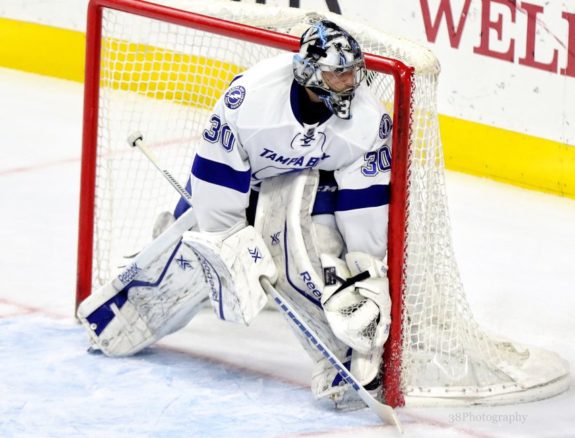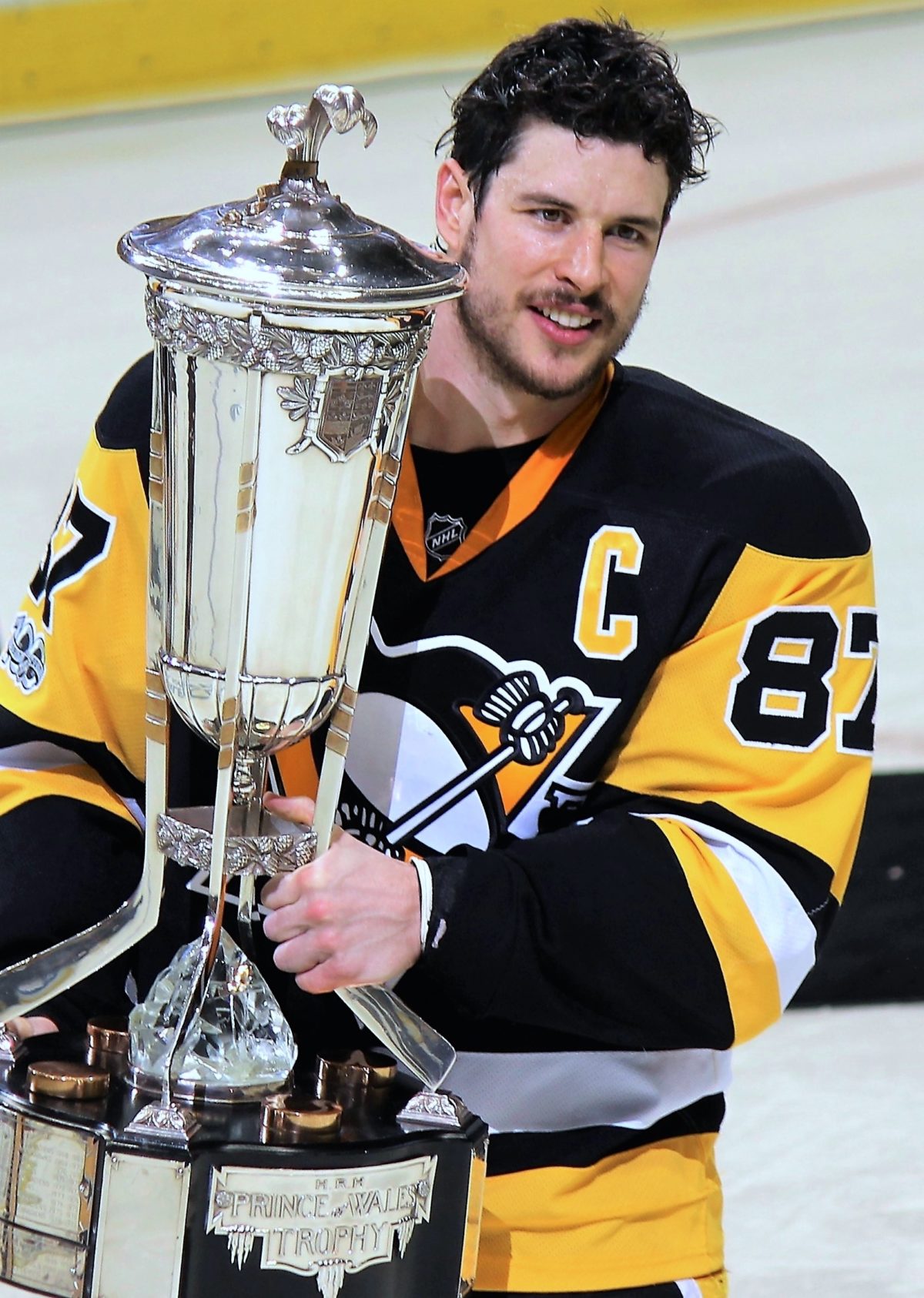The Tampa Bay Lightning finished an entertaining three-game set against the Chicago Blackhawks on Sunday, taking two out of three. The teams traded wins before a wild third game that saw the squad from the Windy City jump out to a 3-0 lead only to see the Bolts storm back with six unanswered to claim the rubber match.
With the COVID-19 protocols, Tampa and Chicago are divisional opponents for the first time. Every game this season is against divisional opponents until the playoffs and even then, they’ll still have to make it to the Conference Final before seeing a team they hasn’t played yet. So by season’s end, there’s the possibility that these two teams will have played each other in 15 contests.
Seeing them play three games in a row this past week conjured up memories of the 2015 Stanley Cup Final for a lot of Lightning fans. That year, Chicago capped off an incredible run with a third Stanley Cup victory in six seasons. The series was razor close, so close, in fact, that neither team had a lead of more than one goal until Patrick Kane scored to make it 2-0 in the third period of Game 6. Tampa’s offensive output for the series was to blame for most of Bolts nation, but a closer look reveals some extenuating circumstances that may have been the culprit.
The Goal Drought Happened at the Worst Possible Time
During the regular season that year, the Lightning buried 262 goals as a team to lead the league and conceded only 211 goals – a difference of plus-51, for the second overall goal differential, proving that it wasn’t just the offense carrying the team all year. Scoring in the first three rounds wasn’t that much of an issue either. It was more difficult to score than in the regular season, but when they had to, they could find the twine. Then they met the Blackhawks in the Final and it all changed.
The Lightning made Hawks goalie Corey Crawford look like a wall between the pipes. He was good, no doubt, but he got a lot of help from Tampa missing chances, hitting posts and just generally lacking any real creativity in the offensive zone. Crawford ended the series with a shutout in Game 6 to finish with a .936 save percentage. Tampa ended the series having scored just 10 goals in the six games.
So what happened to the vaunted Tampa offense? Well, for one, Chicago happened. They co-led the league with the Montreal Canadiens for fewest goals against with a stingy 189. The Hawks were decent all year offensively, but it was the defense that was the team’s calling card that year. Jonathan Toews is considered one of the best two-way centers the NHL has seen in the last 20 years and he was great against the Bolts. He was matched up with Steven Stamkos most of the way and effectively checked the Lightning captain out of the series.

Without a reliable second go-to scorer, this put all the pressure to score on the rest of the team and they just didn’t measure up. Nikita Kucherov has shown how he can be the main cog of the offense, but in that series, he was still just coming into his own as a young 22-year-old. Had the two teams met a year or two down the road, things most certainly would’ve been different.
Key Injuries Took a Toll
Ben Bishop was fantastic all playoffs, but unfortunately, sustained a full groin tear during the Game 2 win for the Lightning. He showed his mettle, not giving up more than two goals in any game after that, but that was somewhat due to the Bolts adopting a more defensive style to help out the injured goaltender.
In Game 4, Bishop was unable to play so the team started rookie Andrei Vasilevskiy. He played well, only giving up a pair, but the team could only muster a single goal. The Lightning were clearly playing to protect the young goalie, limiting Chicago to two shots in the first period and just 19 the whole game. The rest of the series, it was defense-first until the Bolts got behind and had to go for it. This, of course, left them open to odd-man rushes the other way, the exact way the Blackhawks liked to play.

One injury that seemed to be a bit overlooked was the broken wrist sustained in Game 1 by Tyler Johnson. A wrist injury of any kind can be an obvious detriment to a hockey player given the nature of playing a sport where your wrist is used at all times. A broken wrist is near impossible to play with. Johnson still suited up for every game, but he was clearly diminished. He came into that series as the team’s top goalscorer and points leader, but could only muster a single goal against Chicago. That was still one more than Stamkos, who couldn’t get one the entire series.
Even with all that going against the Lighting, every game could’ve easily gone either way. Say Stamkos scores just a couple of goals, or Johnson doesn’t have to try and play through that terrible injury. How about if the power play was just a tiny bit better than the 1-for-13 output it had during the series. How about if Bishop only pulls his groin, instead of tearing it. Given how tight the series was, it’s entirely conceivable that Tampa would have won it if just half of those things went their way.
A Lightning Dynasty Was So Close to Fruition
So for argument’s sake, let’s say the Lightning got a couple of breaks and beat Chicago, the next three seasons probably would’ve ended quite differently. The very next year, Tampa lost in seven games in the Eastern Conference Final against the eventual champion, Pittsburgh Penguins. Pittsburgh was on the brink of elimination in Game 5, had the Bolts won that one in OT, the series would’ve been over. The Penguins went on to win back-to-back titles in 2016 and 2017, beating the overmatched San Jose Sharks and Nashville Predators in successive years.
In 2017, the two straight deep playoff runs and injuries took their toll and the Lightning missed the playoffs. The next season, however, the Bolts re-grouped and made another deep run to the Conference Final, losing in seven to the Washington Capitals who went on to win the first-ever championship for the franchise.

The newly inaugurated Vegas Golden Knights faced the Caps for the title in 2018. It was evident during that final series that the Knights had run out of gas. The Conference Final between Washington and Tampa was a really close affair that went the distance. Just like Pittsburgh, the Caps were pushed to the brink of elimination down three games to two after losing Game 5. In the next two games, though, the Lightning were shut out, and the rest is history. Washington went on to easily win the Stanley Cup in just five games. It was the first Cup for long-time great Alex Ovechkin, when it easily could’ve been the first title for fellow countrymen, Kucherov and Vasilevskiy.
The 2019-20 playoff debacle against the Columbus Blue Jackets could’ve still happened, but if the Lightning went into that series with a Cup or two under their belt, it’s a lot more unlikely. Even so, last year’s Cup run probably still happens. All of the factors that contributed to last year’s run would still be relatively the same, minus a piece or two here or there. The drive to avenge the early playoff exit would still be the same as well. Bolts fans were pretty content with the Cup victory a season ago, but history shows that it could have, and probably should have, been the second or third title since 2004 instead of just the first.